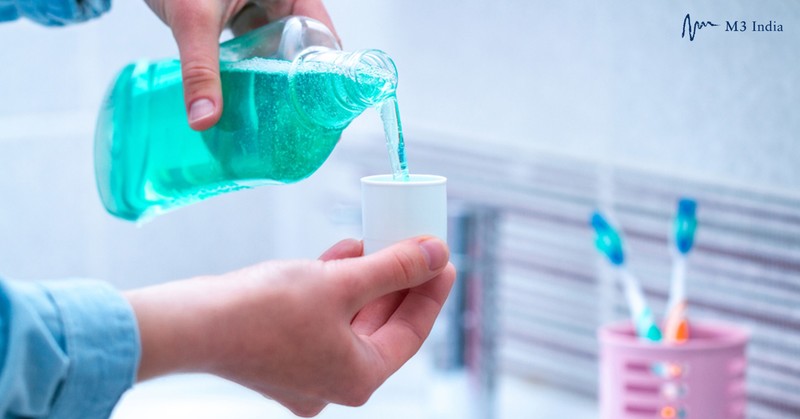Readily available dental mouthwashes have the potential to destroy the lipid envelope of coronaviruses, combating virus replication in the mouth and throat. The findings are presented in a new review article published in Function, concluding that there is an urgent need to test the effectiveness of this approach in clinical trials.
For our comprehensive coverage and latest updates on COVID-19 click here.

“Emerging studies increasingly demonstrate the importance of the throat and salivary glands as sites of virus replication and transmission in early COVID-19 disease. SARS-CoV-2 is an enveloped virus, characterised by an outer lipid membrane derived from the host cell from which it buds. While it is highly sensitive to agents that disrupt lipid bio-membranes, there has been no discussion about the potential role of oral rinsing in preventing transmission,” the research team wrote.
“Here, we review known mechanisms of viral lipid membrane disruption by widely available dental mouthwash components that include ethanol, chlorhexidine, cetylpyridinium chloride, hydrogen peroxide, and povidone-iodine. We also assess existing formulations for their potential ability to disrupt the SARS-CoV-2 lipid envelope, based on their concentrations of these agents, and conclude that several deserve clinical evaluation.”
Notably, the lipid envelope does not vary when viruses mutate. This means that if the strategy is deemed effective, it should still work against any new coronavirus strains that emerge.
A multidisciplinary international team of scientists and clinicians led by researchers at the Cardiff University School of Medicine co-authored the Evidence Review, while industry partners provided global formulation information. This article is the first of a new style review article, with conclusions entirely based on precisely referenced original peer-reviewed articles. This is an important feature of Function, the newest publication in the American Physiological Society’s family of journals.